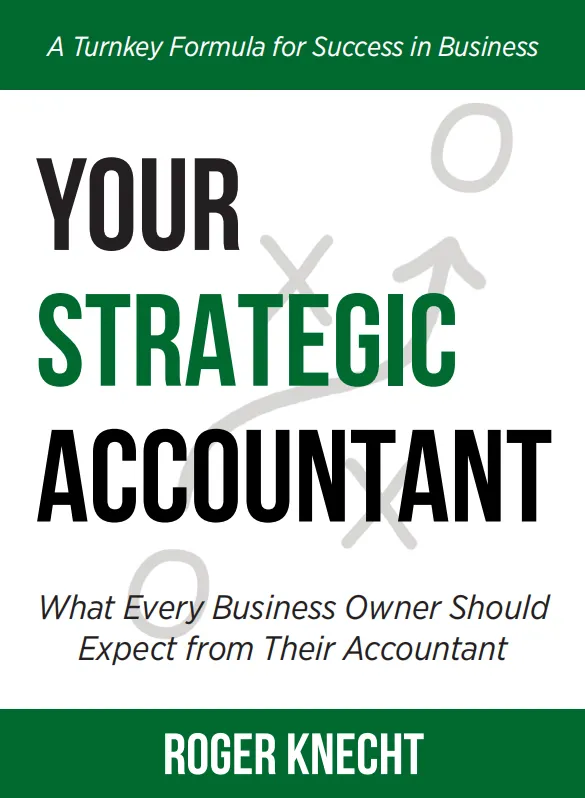Navigating the complex world of taxes can be a daunting task for many. That’s where Enrolled Agents (EAs) come in – as the tax experts authorized by the IRS to represent taxpayers. But how do these professionals acquire their expertise? The answer lies in an Enrolled Agent Course. If you’re considering a career in tax planning and preparation or looking to enhance your knowledge of tax law, an enrolled agent course is an invaluable step on your journey.
Let’s dive into what an EA course entails and why signing up could be a game-changer for your professional life.
Understanding the Role of an Enrolled Agent
Enrolled Agents are federally-licensed tax practitioners who specialize in tax law and are empowered by the U.S. Department of the Treasury to represent taxpayers before the Internal Revenue Service (IRS) for tax issues including audits, collections, and appeals. Unlike CPAs or attorneys, who may or may not specialize in taxes, all EAs specialize in taxation and are the only taxpayer representatives who receive their right to practice from the federal government.

What is an Enrolled Agent Course?
An enrolled agent course is a comprehensive educational program designed to prepare candidates for the Special Enrollment Examination (SEE), commonly referred to as the EA exam. This exam is a three-part assessment administered by Prometric on behalf of the IRS, covering a wide range of tax-related topics.
EA Exam Structure
The EA exam is divided into three parts:
- Individual Taxation: This section deals with tax issues related to individuals.
- Business Taxation: This part covers taxes on different types of businesses, including corporations, partnerships, and other entities.
- Representation, Practice, and Procedures: This section tests the candidate’s understanding of the rules and regulations of representing taxpayers.
Course Content
An enrolled agent course typically includes:
- Comprehensive study materials covering all aspects of federal tax law.
- Practice exams to simulate the EA exam experience.
- Access to experienced instructors for guidance and clarification of complex topics.
- Updates on the latest changes in tax law and IRS procedures.
The best enrolled agent courses go beyond just preparing you for the exam. They also focus on practical application, ensuring that you can use your knowledge effectively in real-world tax scenarios.
Why Should You Sign Up for an Enrolled Agent Course?
Recognition and Credibility
As an EA, you gain credibility and recognition in the field of tax preparation. This can lead to increased trust from clients and the potential for more business opportunities.
Expertise in Tax Law
Completing an enrolled agent course equips you with a deep understanding of tax law, enabling you to navigate the nuances of various tax situations. This expertise is invaluable, especially when dealing with complex tax issues.
Career Advancement
For those already working in tax preparation, becoming an EA can lead to career advancement and potentially higher earnings. It’s a mark of distinction that can set you apart from your peers.
Flexibility and Autonomy
Enrolled Agents have the flexibility to start a business, work for accounting or tax firms, or even find opportunities within the corporate sector. With the federal licensing, EAs can practice in any state, unlike CPAs who are licensed by state.
Continuous Learning
Tax laws are ever-evolving, and as an EA, you’ll be at the forefront of these changes. Enrolled agent courses and subsequent continuing education requirements ensure that you’re always up-to-date with the latest in tax regulation.
IRS Representation Rights
One of the most significant benefits of becoming an EA is obtaining the privilege to represent taxpayers before the IRS. This includes representing clients in cases of audits, appeals, and collection matters.

Choosing the Best Enrolled Agent Course Online
When selecting an enrolled agent course online to get certified, consider the following factors:
- Content Quality: Ensure the course covers all the topics outlined in the IRS EA exam content outline and is updated regularly to reflect current tax laws.
- Flexibility: Look for a course that allows you to study at your own pace and provides access to materials 24/7.
- Instructor Support: Having access to knowledgeable instructors can be a crucial factor in your success.
- Reputation: Research the course provider’s reputation and read reviews from past students.
- Pass Rates: Check the provider’s history of student pass rates on the EA exam, which can be a good indicator of the course’s effectiveness.
The Universal Accounting Center’s course meets all the key points mentioned above, making it an excellent choice for those pursuing a career as an Enrolled Agent.
Universal Accounting Center’s Enrolled Agent Course
The Universal Accounting Center’s Enrolled Agent Course offers over 60 hours of online course lectures, IRS-approved continuing education, and over 2,000 test prep questions, placing a strong emphasis on exam review and preparation, ensuring that participants are well-prepared for the Enrolled Agent (EA) exams.
Online Tax Preparer Certification Course
The Universal Accounting Center offers a comprehensive and flexible Professional Tax Preparer certification course designed to be completed in 4 to 6 weeks. This program provides participants with access to UAC’s proprietary TAX software and includes hands-on training from seasoned tax professionals. The course is a perfect solution that aims to equip students with the practical skills needed for a successful career in tax preparation.
Achieving tax certification is a significant milestone, granting the prestigious title of Enrolled Agent, which is highly respected in the tax industry. Through this certification, individuals can enhance their career prospects and demonstrate their expertise in tax matters.
Additional Resources
- Bookkeeping & Accounting Services: These services complement your EA training by providing in-depth knowledge of managing financial records, which is crucial for tax preparation.
- Tax Planning & Preparation Services: Enhance your understanding of tax strategies and compliance, a core component of the enrolled agent role.
- CFO & Advisory Services: Learn about advanced financial management and advisory skills, expanding your capabilities as an EA and offering more value to your clients.
Online vs. In-Person Courses
While in-person courses can provide a structured learning environment, online courses offer greater flexibility and convenience. With advancements in e-learning technology, online enrolled agent courses have become increasingly interactive and effective. They’re an excellent choice for those balancing work or other commitments.
Enrolled Agent Ethics Course
In addition to tax law and procedure, enrolled agents must also complete an ethics course as part of their continuing education requirements. The enrolled agent ethics course covers the ethical responsibilities of EAs, Circular 230 regulations, and best practices for tax professionals. This ensures that EAs adhere to the highest standards of professional conduct.
Preparing for the EA Exam
Success on the IRS exam requires dedication and effective study habits. Here are some tips to prepare:
- Create a Study Plan: Develop a schedule that allows you to cover all the material systematically and includes time for review.
- Practice, Practice, Practice: Take advantage of practice exams to familiarize yourself with the format and types of questions you’ll encounter.
- Stay Current: Keep abreast of the latest tax updates and IRS announcements.
- Join Study Groups: Collaborating with others can provide additional insights and help reinforce your understanding of complex topics.

News
On June 28, the U.S. Treasury Department finalized a rule requiring cryptocurrency brokers, including exchanges and payment processors, to report users’ sales and exchanges of digital assets to the IRS. Starting next year for the 2026 tax season, this rule aims to ensure crypto users pay their taxes, potentially raising $28 billion over a decade. The rule includes a $10,000 reporting threshold for stable coin transactions and introduces Form 1099-DA to simplify tax reporting.
Despite initial industry concerns about privacy and broad definitions, the Treasury reviewed over 44,000 comments and modified the rule to reduce broker burdens. Additional rules for non-custodial brokers are expected later this year.
Conclusion
EA training and enrolling in a tax course is a strategic move for anyone serious about a career in tax preparation or looking to deepen their understanding of tax law. With the prestigious designation of an EA, you’ll open doors to new professional opportunities, gain the respect of peers and clients, and enjoy a career with the potential for growth and autonomy. Sign up for a tax agent course today, and take the first step towards becoming a recognized expert in the world of taxation.
By arming yourself with the knowledge and skills obtained through an EA course and tax training, you’ll be well-prepared to tackle the EA exam and excel in your role as a trusted tax professional.









